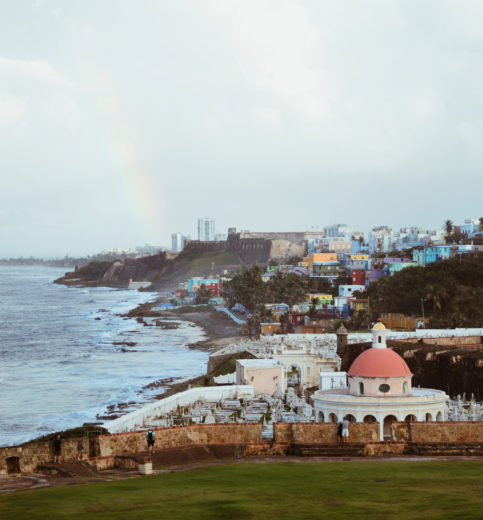
My grandmother came to New York from Puerto Rico in 1946. She was 16 and went to work in New York City’s sweatshops in the aftermath of WWII and just before Operation Bootstrap. My family was part of “The Great Migration” who established a base for others that come over the next decades. They are the ones represented by American period films like West Side Story – the early arrivals who fought for space among Irish, Italian and Jewish communities. They created enclaves in the Bronx, “El Barrio” in Manhattan and Los Sures of Williamsburg, Brooklyn while battling discrimination for being both recent immigrants, and “colored” in pre-civil rights New York.
Three generations later I am standing in midtown Manhattan marveling at the beauty before me: Puerto Ricans of all shades and sizes, demonstrating against injustice and corruption on the island – playing a part as the Puerto Rican Diaspora pressure Governor Rosselló to take responsibility for, abusing the trust he was given by the people he was supposed to serve.
Following the lead of our people on the island, the demonstrations stretched from days to weeks with a singular focus of disrupting the status quo, and showing the world that at least in Puerto Rico, elected officials must eventually answer to the people.
And it seems to have worked. Rosselló resigned Wednesday night after nearly two weeks of people taking the streets. It’s a glorious victory for a people in need of a win. After the injury of Hurricane Maria, the added insult of the current administration playing petty politics with aid and demanding sycophantic submissiveness from island officials, which they readily provided.
The world watched, and as it became clear that the collective action was working, Puerto Ricans far and wide celebrated and expressed their pride at how islanders were able to change their circumstances without great violence. It was a true win for popular organizing and democracy.
So what happens now? Many are asking and of course many have opinions. A traditional succession plan has been announced, which is meeting similar resistance from those weary of more establishment politics. Others believe this is a true awakening for Puerto Rico and see it as a path toward greater autonomy, if not independence.
In the era of social media, anyone with a screen can make a case for their opinion, and I am no different. At this point, I believe the Puerto Rican Diaspora must take a step back, not interject in the conversation, and let the people on the Island decide their next steps.
To many of my Puerto Rican friends this seems counter intuitive, if not sacrilegious. Many see this as a way for the Puerto Rican Diaspora to get involved, help shape the fate of the island, and bring them closer to their homeland.
I understand the sentiment. Many of us are invested in seeing the island and its people get and do better. Among many educated professionals, that means independence from the US. In fact much of the energy that powered the protests from the Diaspora came from those who favor independence. The current outcome would not have happened without that force.
However, it is premature and presumptuous to believe the majority of protesters share this idea. People were tired of their leaders, tired of their situation, tired of the path Puerto Rico has been on but those streets were not filled with any one party or political view. The nearly half a million people there all have their own opinions about what they do and don’t want for their nation.
For that reason, the Diaspora should step back and allow Puerto Ricans on the island to have the necessary dialogue and debates to determine their future. It’s torturous to wait and watch from the sidelines, especially when you may have a passionate desire to see the U.S. colonial relationship end and a new era begin. Allowing for self-determination means accepting and assisting under whatever circumstance or scenario is decided. Otherwise we risk being seen as another outside force and becoming unwelcome.
I am not worried. The people on the island know what’s best for themselves. It would be worse to insert ourselves from our places of privilege to promote or demand that they live a certain way when we are not the ones who would live with the consequences. Our role is not to lead, but to support whatever comes next.
Whatever comes next, the Puerto Rican Diaspora will have work to do. Our privilege as mainland citizens allows us to organize and pressure elected officials to pay attention to and accept the will of the Island. We can recruit allies, create more support, and provide aid and expertise when needed to execute that will.
Our best contribution is to demand the U.S. change its policy toward Puerto Rico: rallying to eliminate the Jones Act; insisting on a debt audit and restructure; and strengthening the infrastructure, school and health systems on the island.
The Diaspora will always have Puerto Rico in their hearts. I believe islanders know this. They also know they can count on us when needed. They’ve got this, and we’ve got their backs.
